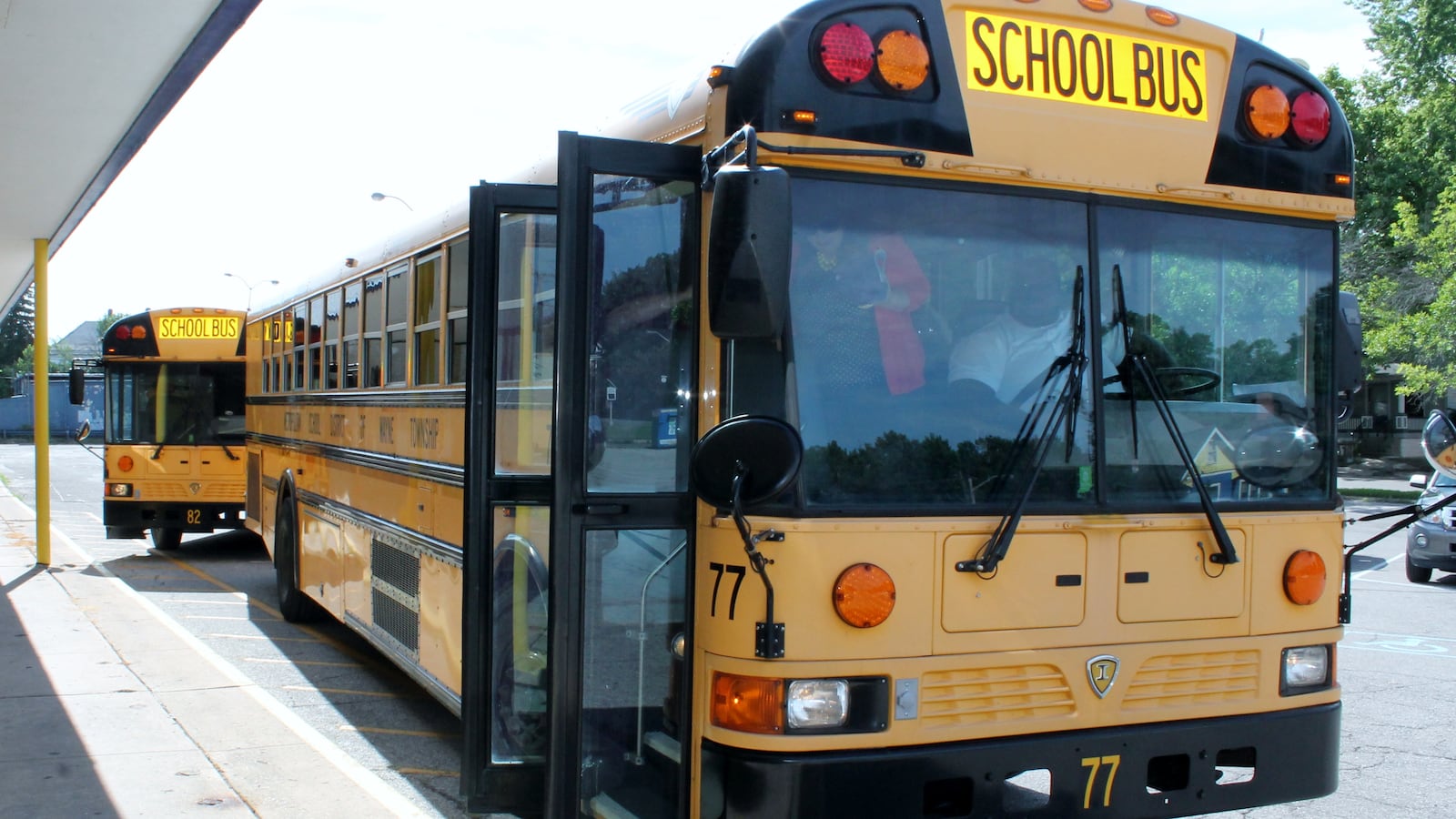The Indianapolis Public Schools board will vote Thursday on whether to provide some KIPP charter school students free busing, a move that would give the schools rare access to services funded by local property tax money.
The board is considering extending to two KIPP schools the free busing it has been providing to former neighborhood schools that were overhauled by charter partners. While the KIPP schools, like those schools, are part of the district’s innovation network, they were previously independent charter schools and have picked up part of the cost of busing their receives from the district.
The vote is significant because Indiana charter schools don’t typically have access to the local tax money that helps fund school buildings and pay for busing. But as the line between district and charter schools blurs in Indianapolis, that’s changing.
“We believe that students who are being served in IPS facilities should benefit from services that are provided by those local property tax funds,” said Jamie VanDeWalle, the district’s portfolio officer, at a school board meeting Tuesday.
The deal is part of a revamping of the contract with the KIPP Indy schools, which serve about 800 students, at the same time the Indianapolis Public Schools board considers whether to add the planned KIPP high school to the innovation network. The board is expected to vote on the agreements Thursday.
The high school would pay for bus service because it is not housed in an Indianapolis Public Schools facility, VanDeWalle said.
How to divvy up money from local property taxes is a controversial issue. In Indiana, schools receive the vast majority of their funding from the state. But they rely on local funding to pay for expenses such as transportation and building maintenance. While charter schools get the same per pupil funding from the state as district schools, they don’t typically benefit from local taxes.
Charter school advocates, however, have long argued that they are underfunded relative to traditional public schools. When Indianapolis Public Schools leaders began their campaign for a tax increase, which easily passed last year, critics of charter school partnerships were wary the money would go to innovation schools. Earlier this year, lawmakers proposed requiring traditional districts that win additional funding for facilities in referendums to share the money with charter schools, but that plan soon died.
The KIPP deal is an example of how a district that chooses to partner with charter schools could share some of the property tax money it receives. But the idea is also controversial.
Chrissy Smith, a parent who opposes innovation schools, said that the district should not provide services including busing to these schools for free.
“Please do not ask IPS students and teachers to continue to do without while you sign contracts that hand over resources to charters,” said Smith, a leader in the IPS Community Coalition, a group that opposes many of the policies of the current district administration.
The district already subsidizes transportation for KIPP. Under the current contract, KIPP pays a transportation fee of $585 per student, or about $470,000 this year. That’s significantly less then the $1.3 million it is expected to cost the district to provide the service to those students, according to chief financial manager Weston Young.
The contract would also change how KIPP pays for the buildings it occupies. Instead of paying a facilities fee that includes custodial services, the school would directly pay the district for those services. It’s a change that would actually result in the district getting about $75,000 more per year from the schools, VanDeWalle said. The network will also pay the district a new $25,000 annual administrative fee.
Over time, transporting KIPP students will become more efficient, officials said. If the new contract is approved, the district estimates it will continue to cost about $1.3 million per year to provide transportation for elementary and middle school students, Young said. But as the district buses more and more students to the planned high school, the per pupil costs of busing all of the KIPP students is projected to go down.
Because KIPP primarily serves students near the Martindale-Brightwood neighborhood, the full cost of busing their students is relatively low, Young said. When the high school is fully enrolled, it is expected to cost about $960 per student to bus KIPP students. For comparison, the district expects to spend about $1,360 next year for the average cost of busing an Indianapolis Public Schools student.

